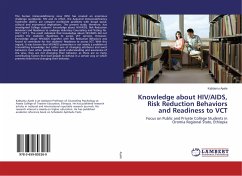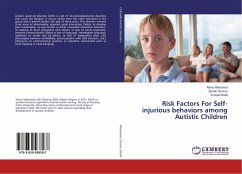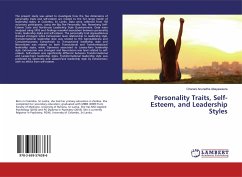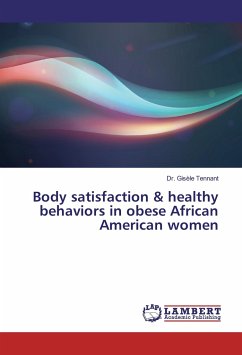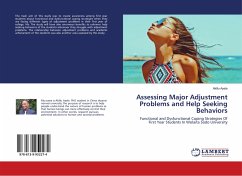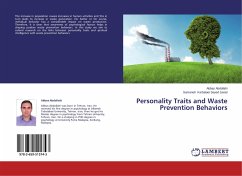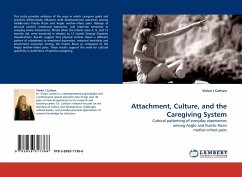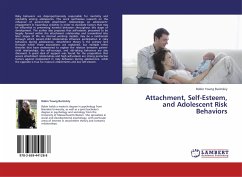
Attachment, Self-Esteem, and Adolescent Risk Behaviors
Versandkostenfrei!
Versandfertig in 6-10 Tagen
24,99 €
inkl. MwSt.

PAYBACK Punkte
12 °P sammeln!
Risky behaviors are disproportionately responsible for mortality and morbidity among adolescents. This work synthesizes research on the influence of parent-child attachment relationships on adolescents engagement in hazardous activities in order to elucidate factors that may be influential in preventing harmful behaviors throughout this stage of development. The author also proposes that self-esteem, presumed to be largely formed within the attachment relationship and transmitted into later stages of life via internal working models, may be a mechanism through which parent-child relationships ...
Risky behaviors are disproportionately responsible for mortality and morbidity among adolescents. This work synthesizes research on the influence of parent-child attachment relationships on adolescents engagement in hazardous activities in order to elucidate factors that may be influential in preventing harmful behaviors throughout this stage of development. The author also proposes that self-esteem, presumed to be largely formed within the attachment relationship and transmitted into later stages of life via internal working models, may be a mechanism through which parent-child relationships influence participation in risky behaviors during adolescence. Attachment theory is the primary lens through which these associations are explained, but multiple other theories that have endeavored to explain the relation between parent-child relationships, the self-concept, and risk-taking behaviors are also discussed. A great deal of support was found for the proposition that secure attachment relationships and high self-esteem are strong protective factors against involvement in risky behaviors during adolescence, while the opposite is true for insecure attachments and low self-esteem.





